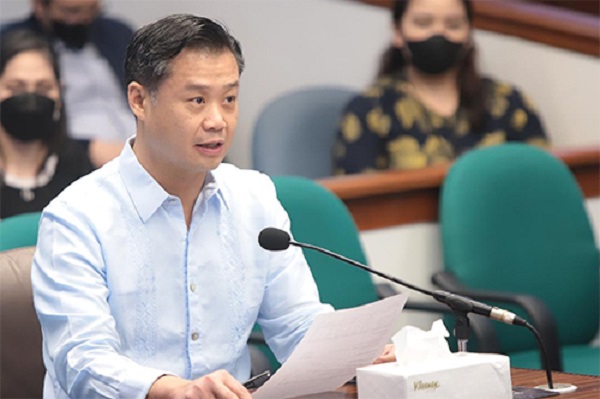Five years after the enactment of the Free Internet Access in Public Places Act (Republic Act No. 10929), only 1.8% of public schools nationwide have access to free public Wi-Fi.

Sen. Sherwin Gatchalian flagged this during his interpellation of the proposed 2023 budget of the Department of Information and Communications Technology (DICT).
He also urged the department to ensure that it would hit its target in rolling out Internet connection in public places, including educational institutions.
Based on the Free Public Wi-Fi Dashboard, only 860 public schools or 1.8% of the country’s 47,421 public schools have free public Wi-Fi as of September 2, 2022.
The Free Public Wi-Fi Dashboard further reveals that the number of public schools has been dwindling since October 2021 when there were only 1,190 (2.5%) public schools with free public Wi-Fi. This further decreased to 945 (2%) by January of this year.
According to a 2021 survey by the World Bank on low-income households, only 40% have access to the Internet. The same survey also revealed that 95.5% of these households used paper-based learning modules and materials.
Under the proposed 2023 national budget, P2.5 billion was earmarked for the implementation of Republic Act No. 10929.
Earlier this year, Gatchalian filed Proposed Senate Resolution No. 59, which seeks a Senate review on the implementation of the Free Internet Access in Public Places Act and the Open Distance Learning Act (Republic Act No. 10650).
Republic Act No. 10929 was enacted to provide free Internet access to Internet service in public places nationwide. It also aims to provide free Wi-Fi Internet access in public basic education institutions, alternative learning system centers, state universities and colleges, and Technical Education and Skills Development Authority (TESDA) technology institutions, among others.
Meanwhile, as the country observes the Library and Information Services Month this November, Gatchalian also is pushing for the creation of the Philippine Online Library to ensure that learning materials remain pandemic-proof.
Gatchalian proposed the creation of the Philippine Online Library in Senate Bill No. 477 or the Philippine Online Library Act. Under the proposed measure, the Department of Education (DepEd) shall create a digital copy of all textbooks and reference books it deems necessary for public education.
The books shall be compiled in the Philippine Online Library, which shall be jointly managed by the DepEd and the Department of Information and Communications Technology (DICT).
To complement the Philippine Online Library, the proposed measure also allows the DepEd to utilize additional materials from the National Library of the Philippines, which should be representative of Filipino culture and literature. The DepEd shall also be allowed to add other materials it deems necessary for expanding learning opportunities.
Gatchalian recalled learners’ dependence on printed modules when distance learning was implemented because of the Covid-19 pandemic.
In 2021, a commissioned survey by the World Bank on low-income households revealed that 95.5% used paper-based learning modules and materials despite the availability of digital learning materials and platforms such as the DepEd Commons.
The lawmaker also pointed to the role of digital education tools in helping learners catch up and bridge learning gaps caused by school disruptions. By making libraries pandemic-proof, learners can access a broader range of textbooks and materials, while teachers can reach out to marginalized learners, Gatchalian added.




